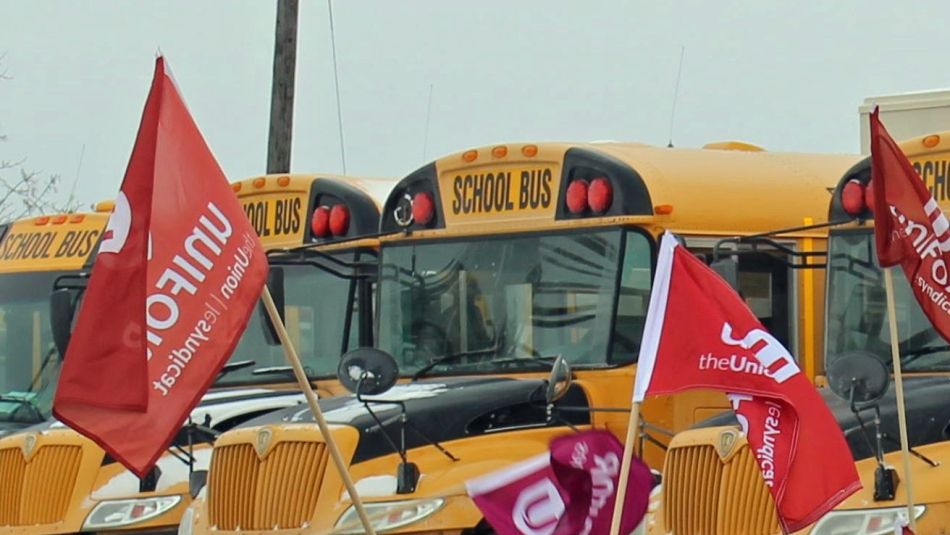
Share
August 30, 2018
TORONTO- – There is no excuse for any shortage of school bus drivers when classes start next week, as some Ontario school boards are already warning could happen, Unifor says.
“It can’t really be a surprise to anyone that if you pay someone poorly, make them work for free and flip their contracts every few years, that you then have trouble recruiting and keeping employees,” said Unifor National President Jerry Dias.
“When drivers are paid fairly, they stick around. It’s not that complicated.”
Unifor is the top union for school bus drivers and a leading critic of the current system for awarding school bus contracts, which has led to a race to the bottom on compensation for drivers.
Many drivers remain without a union, however, and wages and benefits are steadily driven down as school bus companies fight for contracts. All made worse because drivers are routinely forced to work several hours without pay at the beginning and end of their shifts.
“Non-union drivers see that Unifor has been able to improve their working conditions, and are telling us they want to form bargaining units in their workplaces,” said Kellie Scanlan, Unifor’s Director of Organizing.
Unifor continues to actively lobby government and school boards, as it has for several years, but has found that the greatest advances for drivers and combatting high turnover have been made at the bargaining table, where the union has won advances for drivers, including higher wages and compensation for every hour worked.
“Unionized school bus drivers are finallly able to lead better lives thanks to advances made at the bargaining table,” said Ontario Regional Director Naureen Rizvi.
Toronto was forced to fly in drivers from Alberta and rely on taxis two years ago when a shortage of drivers left thousands of students waiting for buses that never came on the first day of school.
Unifor will host a School Bus Summit this fall to examine the challenges facing the industry and what progressive measures can be taken to improve the recruitment and retention of school bus drivers – including unionization and legislative changes.
Rizvi said parents want to be sure their children can get to and from school safely with drivers they know and trust, and that the best way to achieve that is to improve the working lives of drivers.
“Drivers need a voice in the workplace and in the industry if we are going to address the on-the-ground challenges facing this industry. A union can help them achieve that,” said Rizvi.
Unifor is Canada's largest union in the private sector, representing 315,000 workers in every major area of the economy, including 2,900 school bus drivers. The union advocates for all working people and their rights, fights for equality and social justice in Canada and abroad, and strives to create progressive change for a better future.
For more information, please contact Unifor Communications National Representative Stuart Laidlaw at stuart.laidlaw@unifor.org or (cell) 647-385-4054 or Unifor Communications Representative Hamid Osman at @email or 647-448-2823 (cell).



